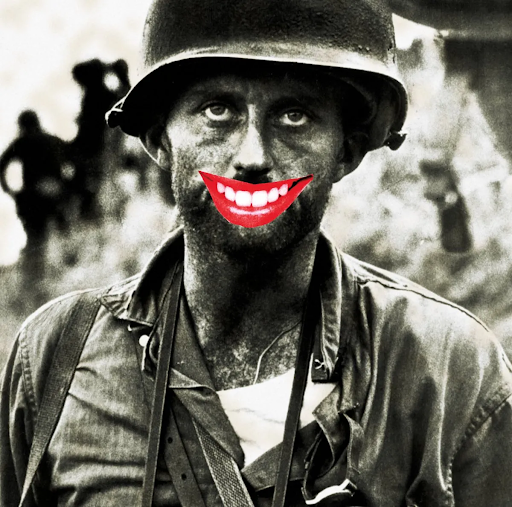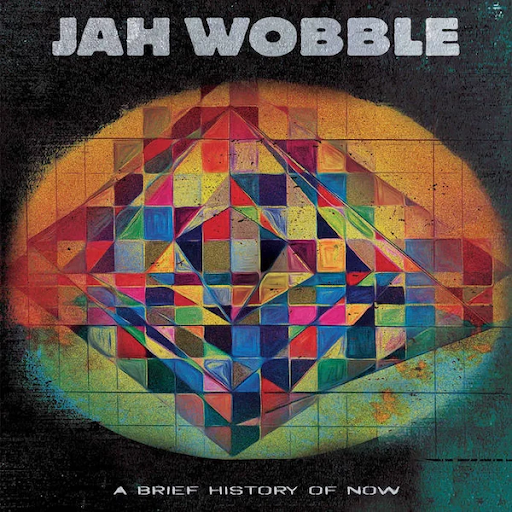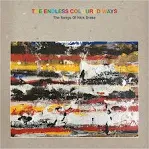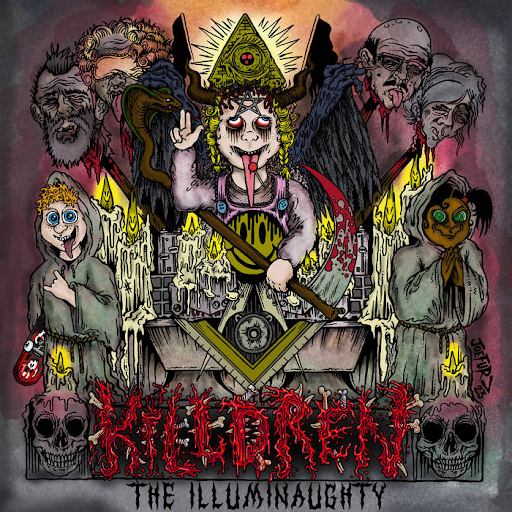Novelist and journalist and passionate advocate of labor unions, socialism, and the rights of workers,Jack London was born on January 12, 1876 in San Francisco as John Griffith Chaney ,His parents were Flora Wellman, the headstr.ong daughter of a well-to-do businessman, and “Professor” W.H. Chaney, an itinerant astrologer, whose celestial counseling took a more earth-bound course (though he later claimed, in correspondence with London, that he was impotent and couldn’t possibly be his father).
When he was eight, his mother married John London, a middle-aged widower with two daughters. She wanted to make money quickly but his stepfather failed as a grocer and the new family had a series of disasters which drove them from home to home in the Bay Area.
Flora had little time for young Jack, so he found mother substitutes in Mammie Jenny, his black nurse, and his stepsister, Eliza, eight years his senior. Shy and sensitive (he later called himself a boy without a boyhood), London felt the only way he could win social acceptance from his peers was by excelling, which meant being a better fighter (he lost a few teeth along the way, but made his point). But he wasn’t so shy he didn’t develop a strong mercantile instinct, such as selling other boys’ rags, bottles and oil cans to junkmen for commissions. He also got a headstart on his writing career when, upon his refusal to sing with his class, the school principal sentenced him to write a composition each noon.
A restless nature and family finances caused him to quit school at 14 and start working around the Oakland waterfront. He also made good use of the Oakland library, beginning to delve into Marx and Nietzche. Between the ages of 15 and 18 he held a variety of jobs such as newsboy, saloon cleaner, and fruit canner. He bought a skiff at the tender age of 15, replete with live-in girlfriend, and became an oyster pirate; he was known as “the prince of the oyster pirates” due to his prowess at this unusual craft. He also hunted for wild cats on the belief that the Chinese would pay large sums for these felines which allegedly gave them strength for tong wars. He went on to sail to Japan as a North Pacific sealer and bummed hisway around the U.S., part of the time as a member of Kelly’s Industrial Army, a protest group which arose out of the Panic of 1893 and which marched on Washington D.C.
But after serving a 30-day vagrancy charge at Niagara Falls, London returned to Oakland determined, despite his refusal to become a “work beast,” to improve his lot in life. At 19, he enrolled in an Oakland high school but found the pace too slow. Taking a five-week cram course, he passed the entrance examination to the University of California. He only went one semester, however, before family finances compelled him to quit school and work, regardless of the risk, for 10 cents an hour at a jute mill. He was so poor he ate meat once a week at the house of his girlfriend,Mabel Applegarth. He did manage, through Eliza, to get a set of false teeth (he chewed tobacco to relieve the pain in his teeth from all the cavities) and celebrated this event by buying his first toothbrush. (Years later, in Korea, he was called to a hotel balcony thinking the crowd wanted to see him as a famous author and discovered the people just wanted to look at his bridge of artificial teeth!).
But he received writing encouragement when, in 1893, he won a prize in the San Francisco Morning Call for a story “Typhoon Off The Coast of Japan.”
Restless, he fled Oakland again and spent the winter of 1897 in the Alaskan Klondike, which was to provide a substantial amount of material for later stories. By this time he had deduced that writing was the best way to earn a living as a socialist under a capitalistic system.
Jack London married Elizabeth "Bessie" Maddern on April 7, 1900. Their wedding was held on the same day that his first short story collection, "Son of the Wolf", was published. Between 1901 and 1902, the couple had two daughters, Joan and Bessie, the latter of which was nicknamed Becky. In 1903, London moved out of the family home. He divorced Bessie in 1904.
In 1905, London married his second wife Charmian Kittredge, who worked as a secretary for London's publisher MacMillan. Kittredge helped to inspire many of the female characters in London's later works. She went on to become a published writer.
By the age of 30 London was internationally famous for his books Call of the Wild (1903), The Sea Wolf (1904) and other literary and journalistic accomplishments. Though he wrote passionately about the great questions of life and death and the struggle to survive with dignity and integrity, he also sought peace and quiet inspiration. His stories of high adventure were based on his own experiences at sea, in the Yukon Territory, and in the fields and factories of California. His writings appealed to millions worldwide.
London became an active socialist in the 1890s. Already notorious before the age of 20, he had written an article “What Socialism is” for the San Francisco Examiner at the end of 1895. In 1896, the San Francisco Chronicle ran a story about the “Boy Socialist”.Neither a theorist nor an intellectual socialist, London's socialism grew out of his life experience. As London explained in his essay, "How I Became a Socialist",his views were influenced by his experience with people at the bottom of the social pit.
In 1896 he joined the Socialist Labor Party (SLP), led by Daniel De Leon, and later that year had a letter published in the Oakland Times urging readers to study Marx’s Capital. London would leave the SLP and join the breakaway socialists around Eugene Debs, running as the Social Democratic Party candidate for mayor of Oakland in 1901 and amassed some 245 votes. He ran again several years later and quadrupled his votes. Though spoken of for the Socialist candidate for the presidency, London’s political career never got past these two unsuccessful mayoral tries. This might be because he signed some his letters, “Yours for the Revolution” and lectured on the evils of capitalism, stressing that “Excess profits were unpaid profits.”
During the early years of the twentieth century, he wrote and spoke up for the burgeoning socialist movement, spreading the message far and wide and leaving a literary legacy around which organisers could recruit.
In “The Scab” (1903) London provided a fitting epithet for those who ignore workers’ solidarity. He wrote that workers apply “the opprobrious epithet ‘scab’ to the labourer who takes from him food and shelter by being more generous in the disposal of his labour-power. The sentimental connotation of scab is as terrific as that of ‘traitor’ or ‘Judas’, and a sentimental definition would be as deep and varied as the human heart… The labourer who gives more time, or strength, or skill, for the same wage, than another, or equal time, or strength, or skill, for a less wage, is a scab. This generousness on his part is hurtful to his fellow labourers, for it compels them to an equal generousness which is not to their liking, and which gives them less of food and shelter…”
In 1905, London founded the Intercollegiate Socialist Society to propagate socialism among students. London spoke at Harvard, Yale and other Ivy League universities, spreading the message of class struggle. In “Something Rotten in Idaho” (1906) he defended the miners’ union leaders Bill Haywood and Charles Moyer, who had been arrested and fitted up for murder.
His 1908 novel The Iron Heel depicted the rise of fascism in an America eventually freed by a socialist hero.The Nazis burned this and other socialist-leaning works in 1933, but did not, however, ban London's adventure stories.
London remains a complicated character. He was a socialist who worked hard at making money, becoming one of the highest-paid writers of his day; an author who broke ground by having nonwhites as protagonists in some books and yet made troubling ethnic references , consistent with the racism prevalent in his day.Nevertheless it is an infected scar running across his politics that is hard to ignore.
London was also widely known for his personal exploits. A colorful, controversial personality, London was often in the news. Generally fun loving, he was quick to side with the underdog against injustice of any kind.Jack London's commitment to socialist ideals shaped his worldview and led him to advocate for social and political change. An eloquent public speaker, he was much sought after as a lecturer on socialism and other economic and political topics.
Most people considered London a living symbol of rugged individualism, a man whose fabulous success was not due to special favor of any kind, but to a combination of immense mental ability and vitality. Strikingly handsome, full of laughter, restless and courageous, always eager for adventure, Jack London was one of the most romantic figures of this time. He ascribed his worldwide literary success largely to hard work—to “dig”, as he put it. Jack London's adventurous lifestyle and commitment to socialist ideals shaped his worldview and led him to advocate for social and political change.
In addition to his writing and speaking commitments, London carried on voluminous correspondence (he received some 10,000 letters per year), read proofs of his work as it went to press, and negotiated with his agents and publishers. He spent time overseeing construction of his custom-built sailing ship, the Snark, (1906-1907); the construction of his dream house, Wolf House (1910-1913); and the operation of his farm, Beauty Ranch, (1905).
The natural beauty of Sonoma Valley was not lost on Jack London. The magnificent vistas and rolling hills of Glen Ellen were an ideal place for Jack and Charmian (London’s second wife) to relax and enjoy the natural life. “When I first came here, tired of cities and people, I settled down on a little farm…130 acres of the most beautiful, primitive land to be found in California.”
Though the farm was badly run down, he reveled in its natural beauty. “All I wanted,” London said later, “was a quiet place in the country to write and loaf in and get out of Nature that something which we all need, only the most of us don’t know it.” But true to London’s vigorous nature, he did little loafing and was soon busy buying farm equipment and livestock for his Sonoma Mountain ranch. He began work on a new barn as well as envisioning his dream, Wolf House. “This is to be no summer residence proposition,” he wrote to his publisher as he began planning in 1905, “but a home all the year round. I am anchoring good and solid, and anchoring for keeps.”
Living and owning land near Glen Ellen was a way of escaping Oakland, from the city way of life he called “the man trap.” But, restless and eager for foreign travel and adventure, he decided to build a ship, the Snark, and go sailing around the world, serializing his adventure. The Snark voyage made it as far as the South Pacific and Australia but was curtailed due to ill health. Discouraged by health problems and heartbroken about having to abandon the trip and sell the Snark, the Londons returned to the ranch in Glen Ellen.
Between 1908 and 1913 London purchased adjoining farms and in 1911 he moved from Glen Ellen to a small wood frame house in the middle of his holdings. (This Cottage and adjoining Stone Dining Room can be toured at the Park, a touchstone to the early 20th-century life Jack and Charmian enjoyed at the ranch). On horseback, Jack explored every canyon, glen and hilltop. He threw himself into the farming fad of the period, scientific agriculture, believing this to be a truly justifiable, basic and idealistic means of making a living. A significant portion of his later writing—Burning Daylight (1910), Valley of the Moon (1913) and Little Lady of the Big House(1916)—centered on the simple pleasures of country life, the satisfaction of making a living from the land and remaining close to nature. Jack and Charmian London’s dream house began to take shape early in 1911 when a well-known San Francisco architect, Albert Farr, created the drawings and sketches for Wolf House. Farr supervised the early stages of construction of a grand house that was to remain standing “for a thousand years”.
By August 1913 London had spent between $50,000 and $75,000 and the project was nearly complete. On August 22 final cleanup got underway and plans were laid for moving the Londons’ specially designed custom furniture, thousands of books, collections from travel, and personal belongings into the massive stone and redwood residence. That night, a ranch hand noticed a glow in the sky half a mile away. Wolf House was burning. By the time the Londons arrived by horseback the house was ablaze, the tile roof had collapsed, and even a stack of lumber some distance away was burning. Nothing could be done.
London looked at the fire philosophically, but the loss was a crushing financial blow and the end of a long-cherished dream. Rumors abounded about the cause of the fire. In 1995 a group of forensic fire experts visited the site and concluded that the fire resulted from spontaneous combustion in a pile of linseed oil-soaked rags left by workers. London planned to rebuild Wolf House, but at the time of his death in 1916 the house remained as it stands today, the stark but eloquent vestige of a shattered dream. The loss of Wolf House left London depressed, but he forced himself to go back to work.He added a new writer’s study to the Cottage, continued his efforts to breed prize livestock, and expanded his plans for the 1400 acres he now owned.
Occasionally, London traveled to New York, San Francisco, or Los Angeles on business. He spent time living and working aboard his 30-foot yawl, the Roamer, which he sailed around San Francisco Bay and the nearby Sacramento and San Joaquin deltas.
In 1913, London published what was arguably his least successful book, John Barleycorn, a non-fiction account carrying the subtitle Alcoholic Memoirs.A classic biography of Jack London as a drunk; it is most likely the first thoughtful analysis on alcoholism in Amreican literature. The novel is packed full with London’s notorious adventures including his well known drinking career via the character known as John Barleycorn - a term even now given to alcohol just like the ‘demon rum.’ It is an incredible insight into London and alcoholism.
John Sutherland, professor of English Literature at University College in the UK, wrote in his introduction to the Oxford edition of Jack London’s book that London had pitched the book as “the bare, bald, absolute fact… of my own personal experiences in the realm of alcohol.” As Sutherland notes, “The drunk’s stigma was, however, indelible in 1913. No one of London’s public standing had ever come clean on the question of problem drinking before—at least not while at the zenith of their power and fame.”
In 1914 Jack became a war correspondent in Mexico, covering the role of US troops and Navy ships in the Villa-Carranza revolt. London dropped out of any active socialist politics by the end of the noughties. In 1914 he supported the allied side in WWI. He resigned from the Socialist Party in early 1916. London made it clear in his resignation letter that he was not abandoning the ideals of socialism, but rather the Socialist Party itself because of "its lack of fire and fight, and its loss of emphasis on the class struggle." It's an important distinction. He never did abandon socialism, and even in his departure, he stated what it was all about: “I believed that the working class, by fighting, by never fusing, by never making terms with the enemy, could emancipate itself”.
After breaking with the Socialist party, London became increasingly isolated from his friends and political compatriots in the last years of his life.London’s physical health deteriorated as well. By age 37, the strong, ready-for-anything body of his youth of which he had taken so much pride had become bloated and creaky, old before its time. His formerly fit waistline had expanded, his joints ached from rheumatism, and he was stricken with uremia. kidney failure.
Doctors pleaded with him to change his his work habits and his diet, stop all use of alcohol and get more exercise, he refused. If anything, the pressure of his financial commitments to helping friends and relatives and his increasingly severe health problems only made him dream larger dreams and work harder and faster.habits, but he refused to alter course. He continued to chain-smoke 60 Russian Imperials a day, gorge himself daily on two nearly raw ducks (his favorite meal), and enjoy the regular company of John Barleycorn. He was constantly fatigued and in pain, and when kidney stones arose to deepen his suffering, he added morphine to his arsenal of self-medications
In 1915 and 1916, Charmian persuaded her husband to spend time in Hawaii, a relaxing and healthful respite for the two of them. But London’s greatest satisfaction came from his ranch activities. His ambitious plans to expand the ranch and increase productivity kept him in debt and under pressure to write as fast as he could, even though this might mean sacrificing quality for quantity. He continued to push to complete 1000 words per day regardless of his location, duties, or health.
Jack London's death remains controversial. an alcoholic and addicted to painkillers, he had been suffering from a variety of ailments, but up to the last day of his life he was full of bold plans and boundless enthusiasm for the future. Many older sources describe it as a suicide, and some still do. However, this appears to be at best a rumor, or speculation based on incidents in his fiction writings. His death certificate gives the cause as uremia, also known as uremic poisoning (kidney failure).
He died November 22, 1916, at the age of 40 in a sleeping porch in a cottage on his beloved ranch and it is possible that a morphine overdose, accidental or deliberate, may have contributed to his death. Words of grief poured into the telegraph office in Glen Ellen from all over the world.
The buildings and property where he built his last home, and where he and his wife were cremated and interred, were later preserved as Jack London State Historic Park, in Glen Ellen, California. London became for much of the 20th century possibly the best known American author around the world,
Despite his relatively short life, his literary legacy remains influential, inspiring generations of readers with his gripping storytelling.and his legacy and writings speak to a life lived with abandon.In any era undergoing dramatic social change, the work of a writer like London can still arouse people’s sense of fairness and justice that still remains relevant and engaging.
London's literary executor, Irving Shepard, who visited London weeks before he died reported that London said, "I would rather be ashes than dust ... The function of man is to live, not to exist. I would rather that my spark should burn out in a brilliant blaze than it should be stifled by dry-rot. I would rather be a superb meteor every atom of me in magnificent glow than a sleepy and permanent planet. The function of man is to live not to exist. I shall not waste my days trying to prolong them. I shall use my time."
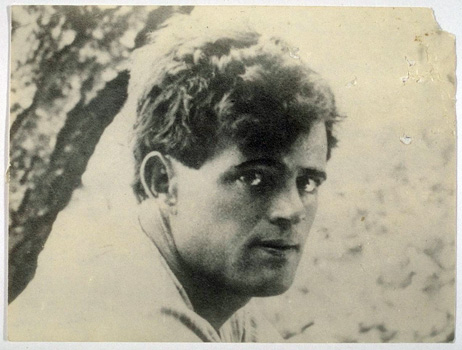



%20(3).jpg)




%20(1)%20(3).jpg)















